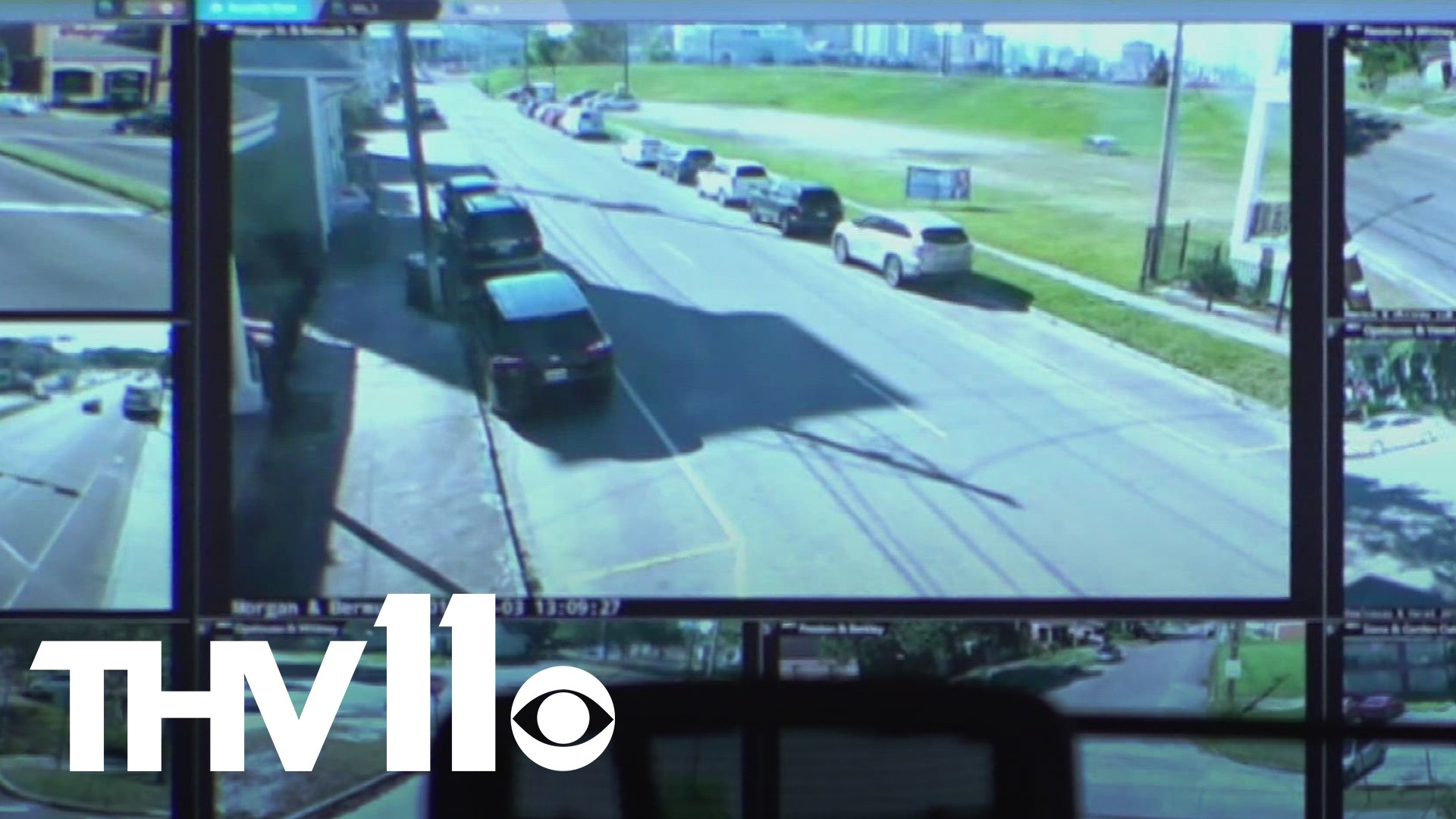LITTLE ROCK, Ark. — It feels like it could be something out of a science fiction movie.
"In a sense, yeah, it's kind of like Minority Report," Little Rock Police Assistant Chief Heath Helton said, laughing. "The future is definitely upon us."
But this is anything but – an idea from the department is very real, and just a few months away from being up and running.
"We can start processing this information a little bit more, you know, quicker," Assistant Chief Helton said. "Identify crime trends, patterns, and then, you know, potentially prevent crime."
They're planning on doing that with a "Real-Time Crime Center." It's a way for the department to keep an eye on crime as it's happening, and respond much quicker and with more information.
"We currently have pieces in place already that we kind of are doing this already, what a real time crime center does," Assistant Chief Helton said. "They're just kind of dispersed around different divisions, so we felt like now's the time to pull them all in and start our own."
The idea of this isn't a new one. Assistant Chief Helton said the New York City Police Department was one the first to do the surveillance system.
Other cities like Memphis, New Orleans, St. Louis and Arlington, Texas, are other cities who have this type of system. Helton said they looked at those cities for ways to incorporate the system in Little Rock.
They also looked at Jonesboro, which has it's own center.
"It does give us the ability to go back and look, and then in those situations that require immediate assistance, we can get on it real time and push it out," Assistant Chief Helton said.
The system works on an already existing platform – cameras that are around the city. In New Orleans, their center received more than 2,300 calls for assistance in its first year of operation.
In 70% of cases, evidence was provided to help.
When LRPD's center opens later this summer, they'll also use those cameras to track not just crime, but things like road conditions and flooding.
Helton said all of that is helpful to them, but the ability to better solve crime, especially violent crime, is a top priority for them.
"It has potential to be a good game changer for us," Helton said. "We can utilize that to try to prevent and deter that crime, and then hopefully get that quality of life back to where it needs to be for those citizens that live in that area."
When it comes to your privacy, LRPD will store video from the system for 10 days, unless it's used as evidence in a case.
"We live in an age of Big Brother anyway," Helton said. "I mean, you can't walk anywhere in the city without potentially being on camera."
But he said they department isn't planning on watching those cameras at all times.
"We're not sitting here watching, looking for people all day everyday," he said. "When we're alerted to an incident that might be at that location, then we'll walk over and look, see if it's going on and then we'll dispatch officers appropriately."
Even if they did, UA Little Rock William H. Bowen School of Law Professor Robert Steinbuch said it wouldn't be illegal, except if those cameras were to film something private.
Those places would be things like bathrooms, or inside a business or a home – that's when problems would pop up.
"Only, for some reason, they have cameras that are pointed in a direction that winds up capturing information from an area that people expect privacy," Steinbuch said. "That would be a classic overstep in this circumstance."
Steinbuch said as long as those cameras are filming things that are public, then there's nothing you can do about it – it's legal.
"You don't have a reasonable expectation of privacy as to your personhood, as to your appearance, as you walk down the street," he said.
While this new technology aims to help get officers where they're needed faster, and provide more real time information, Helton said he understands that people will have those privacy concerns.
He added that this goes beyond that – it's an effort to keep people safe.
"This is our effort to try to continue to build trust with our community, be transparent," Helton said. "Another avenue for that crime prevention aspect, and realistically, it's kind of a form of community policing as well."

